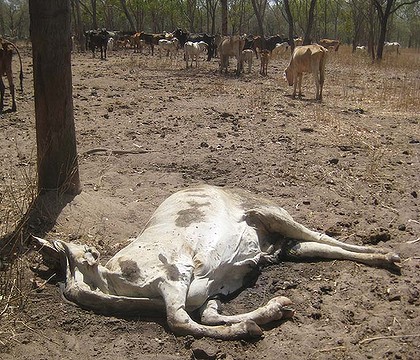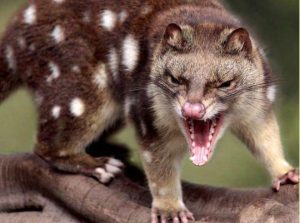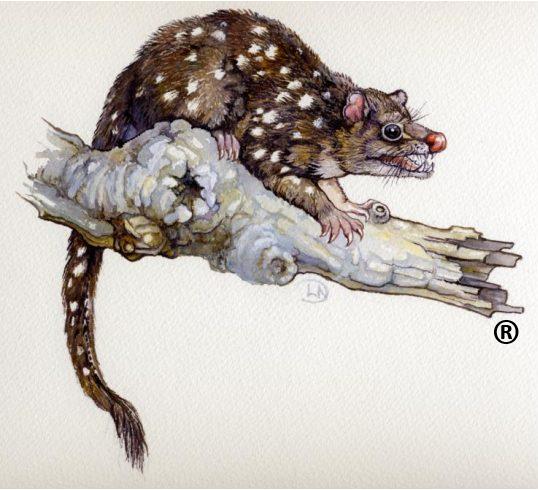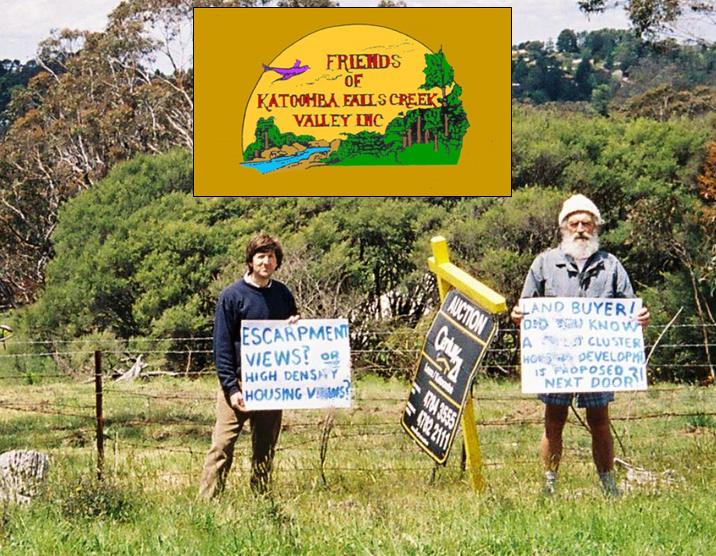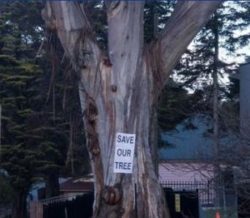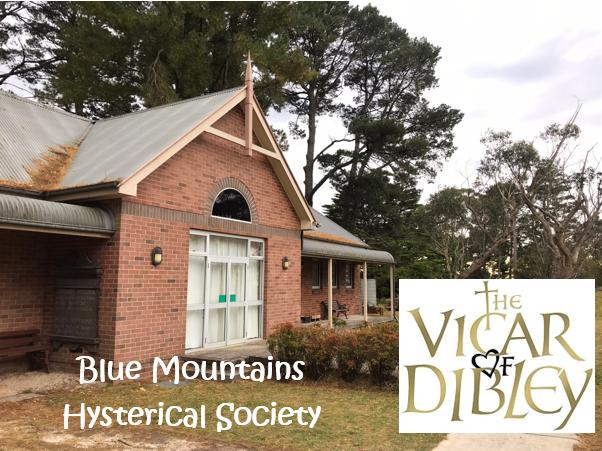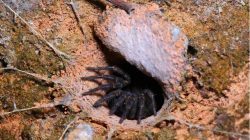Mataranka cruelty – NT Government complicit
Monday, December 19th, 2011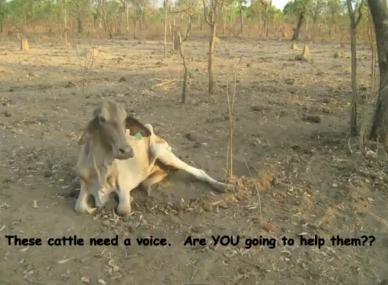 This is not Ethiopia…it is Mataranka Cattle Station in 2010
This is not Ethiopia…it is Mataranka Cattle Station in 2010Northern Territory, Australia [Source: ^http://www.youtube.com/watch?v=pMX7fAMSkXA]
.late
This Editor recalls travelling as an impressionable backpacker by chance through Mataranka some years ago in 1983, then again on a career mission in 1990. The first trip was a ‘gap year‘. The second trip was a personal mission driving from Melbourne via Adelaide, up the Stuart Highway, stopping at Victoria River Downs Station and ultimately arriving at Kununurra. My ambition was to acquire a commercial helicopter license, low-level endorsement and associated cattle mustering experience. It was secured through locally connected ‘Golden West Helicopters’ (Slingsby Helicopters) offering an ‘introductory‘ advantage to a parochial profession closed to outsiders. This was the aviation career lure, albeit achieved after $45,000 dispersed, licence acquired but leading into the 1991 recession then Prime Minister Paul Keating said ‘we had to have‘.
The benefits of hindsight they say, or life’s lesson.
It is an extremely hot place in inland northern Australia about 400 km south of Darwin characterised by grassy woodland savannah. Toward the end of the Dry Season, temperatures can exceed 50 degrees celsius in the sun. While the Brahman cattle breed has been long bred across northern Australia because of the breed’s adaptability to hotter climates, no animals can withstand such extreme heat. But worse, no animal can withstand starvation and abuse at the captive hand of cruel sadistic handlers.
At Mataranka Cattle Station, a 77,000 hectare commercial cattle station, between 2008 and 2010, hundreds of cattle as well as horses were cruelly treated, allowed to suffer and die from criminal neglect and starvation. Station Manager Ian Gray was in charge at the time. He was let off by the Northern Territory Government as part of a government cover up to protect the reputation of the cattle industry and of Charles Darwin University which controlled the cattle station. The instances of animal cruelty are perhaps the worst in Australia’s history. They came a time when many Australians become horrified by the footage of inhumane treatment of cattle in Indonesian abattoirs after being exported live from northern Australia.
The Australian beef cattle industry is promoted by the Northern Territory Government as one of Australia’s ‘premium export industries.’
At what cost?
.
“In northern Australia, beef cattle are raised on very large properties (stations) where they graze on native pastures and bush.”
~ CDU website.
Not only is cattle farming in northern Australia treating northern Australian wilderness as one big cattle paddock and trampling the last remnants of savannah ecosystems, the cattle industry in northern Australia is savagely cruel, immoral and should be shut down. It is no surprise that the main buyer of cattle in northern Australia, Indonesia, is winding down the export trade. Indonesia has been very open about it becoming self-sufficient for years. Those involved in the live cattle export trade have worked themselves into a dead end industry. Based on the following account at Mataranka, the live cattle trade can’t end soon enough.
.
Update (20120103):
It has come to the editor’s attention through a reliable party that the station manager of Mataranka at the time, Ian Gray, has formally rebutted the NT Ombudsman’s report saying that he never maltreated cattle at Mataranka Station. It is anticipated that further insight into this matter will serve to provide a more balanced account of what happened. This article essentially reproduces already reported material from other sources, including the NT Ombudsman and the ABC, which are widely regarded as reliable sources, as well as video footage of the condition of the cattle.
The aim of the article is to raise general awareness of the particular animal cruelty reported at Mataranka Station over several years, plus more broadly of the unethical nature of the cattle industry in northern Australia. We are interested not just in raising awareness of animal cruelty and injustice against wildlife, but changing human behaviour and culture to eradicate cruel and harmful practices. We would like to pursue this subject with an aim of contributing to constructively change to the animal handling culture, harmful farming practices, policies, practices, laws and funding of government, industry and university so as to improve the triple bottom line standards of agriculture across northern Australia. We will be pleased to publish information that helps achieve these ends.
.
.
.
Mataranka Death Campl
“At Mataranka Station from about August 2009 to December 2009 animals died from malnutrition, lack of water and others were destroyed. In many cases, livestock were tick infested, emaciated, thirsty, dehydrated, victims of attack from wild animals and meat ants. Some would have died an agonising death and those that survived were distressed, probably for months.”
.
[Source: Executive Summary, p.4, Volume 1, REPORT OF INVESTIGATION INTO THE TREATMENT OF CATTLE & HORSES AT CHARLES DARWIN UNIVERSITY MATARANKA STATION, by NT Ombudsman, 2010].
Northern Territory’s Charles Darwin University’s (CDU) teaching facility at Mataranka Station has been found to have condoned and ignored widespread animal cruelty, mistreatment, neglect, suffering and starvation of the Station’s 4500-strong herdover a three year period from 2008-2010.
Worse than that, Charles Darwin University in cahoots with the Labor Northern Territory Government have tried to excuse the treatment and sweep the matter under the carpet. The CDU website on 1st February 2010 tried to suggest excuses such as the photos being ‘taken toward the end of the Northern Territory dry season‘, that ‘only a small proportion were in extremely poor condition‘, that cows were ‘calving out of season‘ – the cows fault, and dismissing the abuse simply as ‘poor herd management‘.
It claims CDU acted as soon as it became aware of the problem in September 2009. Crap!
[Source: ^http://ext.cdu.edu.au/newsroom/a/2010/Pages/100201-Mataranka-Station-claims.aspx].
Charles Darwin University students exposed to the cruel animal treatment were disgusted, took photos, formally complained to the authorities (which did stuff all) and resigned from the university in disgust. University students training to work in the pastoral industry said they were distressed after seeing animals suffering and dying.
One witness observed carcasses being bulldozed into a mass grave and set alight after animals were starved and left to die on a university-run cattle station. Some of the animals were so weak they were eaten by meat ants or ripped apart by dingoes, wild dogs and feral pigs. Cattle were tick-infested, emaciated and dehydrated while others were too weak to stand and may have spent days on the ground before dying. Still-alive cattle were seen with their bowels ripped out by dingoes, unable to stand. The hoof of one horse fell off, which only occurs after a long period of neglect and months of suffering.
“Some [animals] would have died an agonising death and those that survived were distressed, probably for months,” Ms Richards said.
[Source: ‘Witness tells of mass animal grave‘, Lindsay Murdoch, Mataranka, Northern Territory, 20110425, ^http://www.smh.com.au/environment/animals/witness-tells-of-mass-animal-grave-20110424-1dt35.html]====
Charles Darwin University’s Katherine Campus still offers a ‘Certificate III in Agriculture (Beef Production)‘ mainly out of Mataranka Station. The campus focuses on agricultural training for Vocational Education and Training (VET) courses, Australian Apprenticeships and traineeships in agriculture. Programs include the nationally-accredited Agriculture & Rural Production VET / TAFE Training Packages. Two-to-five day workshops in rural production skill areas including welding, vehicle maintenance, operating tractors, ride-ons and 4WD driving are also offered by the Katherine campus.
‘Do you want to work in an exciting, challenging industry that involves handling animals and machinery with extensive out-of-doors work? the beef cattle industry may be for you.‘… it promotes.
.
[Source: ^http://www.comparecourses.com.au/Course/certificate-iii-in-agriculture-beef-production-50670.htm].
.
‘Sorry Saga’
.
This article has been prompted by the re-running of the ABC TV’s Landline programme, ‘Sorry saga‘ which was first broadcasted 20110727, and reported by Prue Adams
[Watch Landline Video: ^http://www.abc.net.au/landline/content/2010/s3276556.htm] – still available at the time of publishing.
We’ve seen and heard a fair bit lately about animal welfare. With most of the outrage aimed at the handling of Australian cattle exported live to Indonesia. But today, we’ll show a shocking case of cruelty that occurred right under the noses of government and university authorities in the Northern Territory.
It’s a sorry saga of mismanagement and neglect that’s dragged on for nearly two years. And despite a high-level report recommending prosecution, no one has ever been charged.
Prue Adams prepared this special report for Landline and we should warn some viewers may find images in this story distressing.
TOBY GORRINGE (VOICEOVER): In case you’re unaware, I wish to draw your attention to the serious nature of the animal welfare state of the cattle at Mataranka Station.
PRU ADAMS, PRESENTER: Every journey starts with one small step.
Toby Gorringe could never have foreseen the destination of the journey he began almost two years ago. It’s changed the course of his career and that of a handful of others. It’s led to several high-level inquiries, a well regarded university losing face, and a government scrambling to make departmental and legislative changes.
But still, this stockman and teacher, is far from satisfied.
TOBY GORRINGE, FMR LECTURER CHARLES DARWIN UNIVERSITY: I’ve been in the cattle industry all my life, that’s all I’ve ever done. If I wasn’t mustering cattle and whatever in the bush, I was working in the meat works or shoeing horses or something. So I’ve been around animals all my life. But you don’t have to see what happened there, that was just cruel. Just no other way to describe it. And they got away with it, I can’t believe it.
PRU ADAMS: When Charles Darwin University came into being eight years ago, it inherited the lease on Mataranka Station. An hour’s drive south of Katharine, Mataranka covers 770 square kilometres.
The property and its largely Brahman herd, have provided a useful tool for training students who want to work on the land.
VOICEOVER: So it provides a real life opportunity for pastoral industry training in the Northern Territory, which is vital for a very substantial part of the Northern Territory’s economy.
PRU ADAMS: But in mid 2009, a picture started emerging that all was not well at Mataranka.
A former NT Brahman breeders chairman, Ian Gray, was the station manager at the time and is seen here in an earlier Landline story. Toby Gorringe worked under Ian Gray. He says he complained to his boss that cattle were starving. Photos were taken of some of the dead and dying animals.
TOBY GORRINGE: I’ve seen cows lying down and can’t get up. And their calves are waiting around for them to get up and they can’t. So I’ve seen dead cows and dead calves together and dingos have eaten them alive, ants, pigs, things like that.
This is a letter I wrote to the HR of CDU.
PRU ADAMS: A vocational trainer in beef cattle and horse management, Toby Gorringe took his complaints further up the line within Charles Darwin University, including to the vice chancellor.
Still not satisfied, in October of 2009 he wrote to several Members of Parliament and in January last year contacted the Office of the Ombudsman.
TOBY GORRINGE: I kept going right up until I got to the Ombudsman, and at that time I didn’t trust anybody. And it’s still hard to trust someone, because everywhere I went I was shut down.
JULIE CARLSEN, NT DEPUTY OMBUDSMAN: The complaints were certainly valid and it has been documented quite widely that this is one of the worst animal cruelty cases in Australia.
PRU ADAMS: Julie Carlsen, is the Northern Territory’s Deputy Ombudsman. A former Western Australian police officer, she was put in charge of investigating what had, by the beginning of last year, become a series of complaints from staff, students and teachers at Mataranka Station.
JULIE CARLSEN: The nub of the investigation found that inadequate food was being provided to the animals, if it was provided at all. That watering points had broken down but were not being repaired in an appropriate time frame.
PRU ADAMS: And how many cattle did you find had died in that period?
JULIE CARLSEN: Our estimate was up to 800, and that estimate is based on the information provided to us by the students, by the staff members themselves, by contractors who attended, an independent investigator by the name of Tom Stockwell, who was employed by the University to conduct an investigation.
WOMAN ONE: These black marks around its neck are actually flies.
WOMAN TWO: Oh!
PRU ADAMS: A history of poor record keeping at the station and the death of hundreds of stock the previous year due to a badly managed bushfire, means the exact number of cattle that died will never really be known. The University disputes the Ombudsman’s figure of 800, saying it was more likely to be just over 200, which the Auditor General confirmed based on the University’s own evidence.
Nevertheless between 5 per cent and 18 per cent of the station’s cattle, and at least two horses, perished. And the Ombudsman’s report, tabled in Parliament last October, makes for grim reading.
EXTRACT FROM OMBUDSMAN’S REPORT: Depriving cattle and horses of food and water to the extent that they become so weak that they drop to the ground, is in my view, neglect as defined in the Animal Welfare Act. In one case neglect was so severe that hoof of a horse fell off. This only occurs when there has been months of suffering by the horse.
PRU ADAMS: The ombudsman blamed CDU, Charles Darwin University and…
EXTRACT FROM OMBUDSMAN’S REPORT: Specifically the station manager, for failing to provide the fundamental necessities required to sustain life.
PRU ADAMS: And the Office firmly believed someone should have been prosecuted for animal cruelty. No one ever has been.
JULIE CARLSEN: I personally can’t see why this matter was not given the importance it deserved. That the amount of animals that died, whether it was 200, or whether it was up to 800 was not significant enough for some action to be taken.
PRU ADAMS: Hello Mr Glover, how are you, pleased to meet you too.
The University’s vice chancellor is Professor Barney Glover. We met at a tour of Mataranka Station late last month.
PROF BARNEY GLOVER, VICE-CHANCELLOR CHARLES DARWIN UNIVERSITY: The University accepts the view of the Ombudsman in relation to that matter is that very poor management at the station, primarily related to the station manager at the time, was a major cause of the difficulties that we faced. But on top of that I think it’s also fair to say that the response to the crisis at the time, and I’m on the public record in acknowledging that by the University, was not quick enough to get supplementary feed to the cattle that were in distress and we should have been able to do more, more quickly.
PRU ADAMS: So what went wrong? To begin to answer that question you have to go back a few years when it was decided Mataranka Station would not just act as an education and training site but would also be operated as a commercial venture. Cattle would be bred for sale.
In May 2009 the beginning of the six-month dry season, one of those sales fell through. Meaning the station had more stock than it was able to carry during the hot, dry weather.
TOBY GORRINGE: Well, I seen cattle locked in small paddocks, which are holding paddocks, but they were locked in there for, well they turned out to be in there for over four months. And the weaners that were taken off their mothers were locked in the yards for four months and you could see the condition falling off them on a daily basis.
Cattle that are locked in yards for that period of time don’t get the supplements they need because you can’t feed it to them, they’re not being cattle, they’re just – they can’t act like cattle because they can’t go and walk and have a feed and have a drink when it suits them.
PRU ADAMS: The Katherine Research Station is about an hour’s drive north of Mataranka Station. It was from there, in early September 2009, that government livestock officers were dispatched to check out Toby Gorringe’s complaints. The inspectors later told the Ombudsman they were “absolutely horrified”. They reported the animals were “tick infested and starving”. There were “insufficient water” troughs. A departmental vet read the manager, Ian Gray, his rights, because “serious charges would be laid”.
Another officer later told the Ombudsman that “after 28 years of conducting inspections this was the worst case of neglect he had seen on such a large scale”.
The inspectors said they distributed some feed themselves, and even shot cattle that had fallen and couldn’t get up. But when it was reported back to their own Department of Resources and to the University, the situation was hosed down.
Landline’s attempts to speak with the inspectors on camera have been unsuccessful. A departmental email apparently warned staff not to be involved with our program. Instead, we were referred to Fran Kilgariff, who is new to the role of Animal Welfare Authority in the Department of Housing, Local Government and Regional Services.
FRAN KILGARIFF, ANIMAL WELFARE AUTHORITY: Well, I think what went wrong was that the animal welfare branch, historically, had been focused on small companion animals, dogs and cats and people’s pets, and were largely unprepared for something on that scale and with large animals.
PRU ADAMS: She agrees with the Ombudsman that there was confusion as to which authorities were responsible for livestock welfare.
FRAN KILGARIFF: Look, I think it’s fair to say that in many areas people were not focused on what… perhaps not focused is not the right word, there was not a clarity about what people’s roles were or what the responsibilities of various bodies were, and it’s only when you get an incident as tragic as this that people actually are jolted to think that they actually need to actually be really clear about what their roles and responsibilities are.
PRU ADAMS: In the Northern Territory, to teach with animals, the institution needs a licence. And also needs to establish an Animal Ethics Committee in line with the Animal Welfare Act. At Charles Darwin University, the same person who held the licence for Mataranka Station was also the chairperson of the ethics committee, as well as being Deputy Vice Chancellor of the University.
The Ombudsman called it “an irreconcilable conflict of interest”. That man is Professor Bob Wasson, who appeared before a parliamentary inquiry earlier this month.
(footage from the parliamentary inquiry)
PARLIAMENTARIAN: Were you part of the first inspection by the Animal Ethics Committee, of the station after the complaints were made?
PROFESSOR BOB WASSON: Yes, I was.
PARLIAMENTARIAN: And in that inspection, did you check the shed to see how much hay was in that shed?
BOB WASSON: Yes. There was zero.
PRU ADAMS: In his role on the ethics committee, Professor Wasson was notified very early on about the neglect at Mataranka Station.
Another AEC member reported “the professor would make excuses for the situation at Mataranka”.
(footage from the parliamentary inquiry)
BOB WASSON: I just want to make something very, very clear, and this is not an attempt at any way to shift responsibility. But the AEC was not the manager of Mataranka and I think some of this conversation has sort of blurred that boundary.
BARNEY GLOVER: When that conflict of interest was brought to his attention he immediately resigned to resolve the conflict of interest. Certainly my observations…
PRU ADAMS: From the committee but not from the university?
BARNEY GLOVER: No, but my observations of the Deputy Vice Chancellor’s role during the period of late 2009 and early 2010 was someone who was deeply concerned about the condition of the cattle at Mataranka and very committed to trying to address those difficulties.
PRU ADAMS: In October 2009 this man, Tom Stockwell, independent grazing consultant and owner of Sunday Creek Station was contacted by Professor Bob Wasson to investigate the situation at nearby Mataranka. His report backed up Toby Gorringe’s account of animal neglect and he recommended dismissal of station management.
VOICEOVER: A management system which starved animals to death and then left them for crows, dogs and ants to finish off is frankly distressing in the highest order.
PRU ADAMS: But Mr Stockwell’s recommendations were largely ignored.
Now it seems to me that it was quite apparent by late in 2009, October, November 2009, through Department of Resources reports and also the report by Tom Stockwell who was employed by the University to have a look at the situation…
BARNEY GLOVER: Contracted by the university.
PRU ADAMS: Contracted. It became very apparent that the management was somehow lacking here. Why wasn’t the manager, Ian Gray, sacked?
BARNEY GLOVER: We took into account, and the advice that was provided to me, the report from Tom Stockwell, which was a very comprehensive report. We also took into account the responses to that report by those who were named in the report adversely, in the context of natural justice. We took that into account, while the station manager was stood down. And the recommendation to me was to reinstate the station manager but with a series of conditions attached.
TOBY GORRINGE: So they put him back on; said he had no case to answer; he’s done nothing wrong. So Ian goes in there thinking he’s done nothing wrong. So CDU must be at fault there somewhere because they’ve already told him killing those cattle is not wrong. That’s how I look at it. They put him back on, you have no case to answer, that’s how it looks to me.
PRU ADAMS: Ian Gray was finally encouraged to leave Mataranka in June last year, almost a year after the first complaints were lodged and just as the Ombudsman’s findings were coming to light.
BARNEY GLOVER: The University negotiated a termination of employment contract of the station manager and he left the University.
I don’t believe it constitutes any sort of inducement.
PRU ADAMS: After a 30-year career, Mr Gray says he’s unable to get a cattle industry job and now works in mining. He’s bitter about being targeted by the University, the Ombudsman and the media and doesn’t want to appear on camera. His supervisor and the man who steadfastly supported Ian Gray, in the face of mounting criticism, was qualified university veterinarian, Dr Brian Hyme. He told the Ombudsman “Mataranka was being held to an impossible standard”. He’s also left the CDU to take up a job at a Queensland agricultural college. We spoke at length on the phone but he didn’t want to be quoted for fear of dragging his new employer into the saga.
In April this year, six months after the Ombudsman’s report was tabled in the Northern Territory Parliament, Minister, Malarndirri McCarthy, announced there would be no prosecutions. There’s just 12 months to bring a charge under the Animal Welfare Act and that time had expired.
MALARNDIRRI MCCARTHY, NT LOCAL GOVT MININSTER: It is deeply disappointing that no one will be prosecuted and yes, clearly it is too little too late.
PRU ADAMS: The Minister released two legal advice documents, one from January warning, one from January, warning “the limitation for starting prosecution would expire in April”. And the Opposition claimed it proved the Government was well aware time was running out.
JOHN ELFERINK, NT OPPOSITION JUSTICE SPOKESMAN: The fact that the Government sat on the January report when they still could have brought a prosecution, demonstrates that they were never interested in a prosecution in the first place and I wonder why that might be.
TOBY GORRINGE (reading from email): In case you’re unaware I wish to draw your attention…
PRU ADAMS: In fact Toby Gorringe and his partner sent emails to several members of Parliament, including the Chief Minister, as far back as October 2009. And a freedom of information request lodged by Landline reveals Minister McCarthy was being kept informed of the situation from the middle of last year. The Deputy Ombudsman met with the Minister in late June and showed her the photos of dead and dying animals.
JULIE CARLSEN: I don’t agree that a prosecution was not warranted. My personal view is that had action been taken when it was first brought to the attention of the University, by us, and also the fact that the Minister was advised that a prosecution probably would have been successful.
PRU ADAMS: There have been allegations the Northern Territory Government has stalled any action to make someone responsible for the events at Mataranka, in order to protect its own departmental handling, and the reputations of both the university and the cattle industry. Despite my numerous attempts, the Minister responsible would not make herself available to answer those allegations.
(speaking to Barney Glover)
PRU ADAMS: When the Northern Territory Government came out in April and said that there would be no likelihood of a prosecution, did you, as an organisation, Charles Darwin, as an organisation, feel you’d dodged a bullet?
BARNEY GLOVER: If a prosecution should have occurred they should have occurred and if they didn’t, that was a mistake on the part of the relevant agencies, not to have prosecuted. That’s not a matter of dodging a bullet. My view, based on the wealth of information that’s available now as a result of the very detailed Ombudsman’s report, and the very significant investigations the University’s undertaken, I would be surprised if a prosecution should not have proceeded in 2009.
PRU ADAMS: CDU maintains it issued instructions to ‘keep stock alive,’ and hundreds of cattle were sold to reduce the load. The Vice Chancellor is adamant the University did not interfere in any way with the Government’s decision to not prosecute.
BARNEY GLOVER: But as far as I’m aware never, at any time, was any suggestion made that anyone should take it easy on the University. Our obligation was to fix the problem and to ensure it could never occur again. We were responsible and we needed to take action. So we did not ask for, we did not seek, and we certainly never covered up any suggestion of the Government taking it easy on the University.
PRU ADAMS: OK, and then …
BARNEY GLOVER: Is that clear enough?
PRU ADAMS: That is clear enough. That is clear as a bell, and thank you.
BARNEY GLOVER: Nothing exists.
PRU ADAMS: With many of its students coming from interstate, the University is at pains to point out that things have changed for the better here at Mataranka Station. Hundreds of thousands of dollars has been spent on infrastructure. The animals are well fed and a new manager is under contract until 2013.
(footage driving around the station)
BRAD WALKER: We’ll just go for a quick drive out. We’ll head up the laneways here.
PRU ADAMS: With experience running other cattle stations, Brad Walker has been in charge of making sure there’s better use of paddocks, that there’s appropriate feed and supplement and that breeding the Brahman and composite cattle, gets back on the right track.
BRAD WALKER: There you go, there’s one cow just had a calf, sitting on the ground there now.
PRU ADAMS: A large, new dam provides an inviting spot for a herd of heifers.
The University’s grievance handling procedures have been overhauled and there’s a body which meets regularly to discuss the workings at Mataranka.
ELAINE GARDINER, MATARANKA STATION ADVISORY COMMITTEE: I’m an independent chairman of the Mataranka Station Advisory Committee and that comprises of one person from the University, two industry people, and a person from the Department of Resources in Katherine. So we have a fairly independent view of what’s going on.
PRU ADAMS: And are you absolutely convinced that if you found some element here that was not up to scratch, that the University would take immediate notice?
ELAINE GARDINER: Yes. The Vice Chancellor, I report to the Vice Chancellor after every meeting and he’s very aware of any issues that may arise having had to deal with the issues in the past.
MAN TALKING TO STUDENT AT STATION: And I need to see you riding in this yard…
PRU ADAMS: Charles Darwin University is also considering getting out of the cattle business. Maintaining the training at Mataranka but relinquishing the herd.
BARNEY GLOVER: From certainly the perspective of the University Council, our view is we should be focused on our core business and our core business is really training and education. And so for us to be operating a working cattle station is risky; this is not our business.
PRU ADAMS: The saga at the station has also kicked off a series of changes within government, including the appointment of more animal welfare officers.
FRAN KILGARIFF: We now are in no doubt that the department, that our department, Animal Welfare Branch, is the lead agency in any prosecution. That wasn’t really clear before.
(footage from the parliamentary inquiry)
PRU ADAMS: With the results of a council of Territory cooperation inquiry, due next month, the Animal Welfare Act is also under scrutiny.
FRAN KILGARIFF: Currently the statute of limitations within that act is 12 months, we’re looking at that to see whether that needs to be extended. I think nobody wants to sweep this under the carpet. It’s been such a tragic and disastrous sort of issue that nobody wants to sweep it under the carpet. What we need to do is learn from it.
PRU ADAMS: Toby Gorringe resigned from Charles Darwin University last month and has embarked on the next phase of his life at a community a few hundred kilometres away on the Roper River.
He will be teaching Indigenous teenagers how to ride horses.
TOBY GORRINGE: Horses can teach kids to be anything they want to be.
PRU ADAMS: He’s been scarred by his experience, and believes amidst the current live export debate the case at Mataranka focuses attention on animal welfare in our own country.
TOBY GORRINGE: Australia wants to go and complain about what’s happening in Indonesia and rightly so, so they should, but they want to have a look at their own backyard first. This is a training organisation, has done as bad or worse than what’s happened in Indonesia. So the Government wants to have a look at their own backyard before they go over to Indonesia and tell them what to do.
PRU ADAMS: So it’s been two years now, is it time to move on?
TOBY GORRINGE: Yeah, it’s time to move on. I’ve moved on. I’ve gone to Nucca (phonetic) to work for the school, but it’s very hard to move on mentally because no one’s been charged for what has happened at Mataranka Station. They seem to have got away with animal cruelty which I don’t believe in. And how they got away with it I’ll never know.’
.
.
NT Ombudsman Investigation – NT Government let everyone off scott free
.
The Northern Territory Ombudsman completed a report on the cruelty and neglect in 2010, which was tabled in the NT Parliament in October 2010.last year. The Ombudsman’s office is a place of last resort….
.
“Before making a complaint to us you are encouraged to take all possible steps to resolve your concerns directly with the relevant department. We will not normally investigate a complaint until you have exhausted all regular avenues of appeal or review available. We will assist you to make contact with the appropriate person within a department if needed.”
.
The Northern Territory Ombudsman says Charles Darwin University has not explained how 800 cattle starved to death on its teaching and commercial cattle station. The Ombudsman Carolyn Richards has released her report into the deaths that happened between September last year and May this year at Mataranka Station. The report has criticised the university and government departments for taking six months to properly respond to reports about the animal neglect.
‘Investigation into the Treatment of Cattle and Horses at Charles Darwin University Mataranka Station’
.
This report is about an investigation into the manner in which Charles Darwin University (CDU) managed livestock and conducted operations at the University’s Mataranka Station. The investigation was instigated on the Ombudsman’s Own Motion because of complaints made by people disturbed by the condition and treatment of cattle and horses at that property throughout 2009 and continuing into 2010.
.
- Investigation into the Treatment of Cattle, Horses at CDU Volume 1, 8MB [>Read Report]
- Volume 2 – Cover and Contents, 107KB [>Read Report]
- Volume 2 – pages 4-99, 12MB [>Read Report]
- Volume 2 – pages 100-169, 7MB [>Read Report]
- Volume 2 – pages 170-199, 3MB [>Read Report]
- Volume 2 – pages 200-end, 9MB [>Read Report]
.
Alternatively, download these report sections directly from the NT Ombudsman’s website:
[Source: NT Ombudsmans Office, ^http://www.ombudsman.nt.gov.au/publications-reports/public-reports/].
.
‘Ombudsman slams cattle cruelty‘
[Source: ‘Ombudsman slams cattle cruelty‘, by Lindsay Murdoch, Mataranka, 20110425, ^http://www.theage.com.au/national/ombudsman-slams-cattle-cruelty-20110424-1dszj.html]Carcasses were bulldozed into a mass grave and set alight after animals were starved and left to die on a university-run cattle station, according to a new witness in one of Australia’s worst cases of animal cruelty.
Northern Territory Ombudsman Carolyn Richards said the witness told her office about the incident involving about 800 cattle and horses on Mataranka Station in the Northern Territory, run by Charles Darwin University.
Some of the animals were so weak they were eaten by meat ants or ripped apart by dingoes, wild dogs and feral pigs.
But the university disputes the number of cattle and horses that died, putting it at about 216.
Ms Richards told The Age the grave was on an isolated part of the station, explaining why her estimate differs from the university’s.
The witness, whose name has not been made public, came forward after the Ombudsman had completed a report on the cruelty and neglect which was tabled in the NT Parliament in October last year, Ms Richards said.
Barney Glover, the university’s vice-chancellor, said he had not been told about the new evidence and would contact the Ombudsman about it.
He said the university based its estimate on a study it commissioned last year and physical evidence on the property.
Ms Richards said she was devastated that the NT government had failed to prosecute anyone over offences that occurred on the 77,000-hectare station, 400 kilometres south of Darwin, in 2009 and last year.
In her report, Ms Richards said many cattle on the station were tick infested, emaciated and dehydrated while others were too weak to stand and may have spent days on the ground before dying.
Still-alive cattle were seen with their bowels ripped out by dingoes, unable to stand.
University students training to work in the pastoral industry said they were distressed after seeing animals suffering and dying.
The experience caused some to end their ambition to work in the industry.
Professor Glover denied that the university had played down the cruelty.
“It wouldn’t matter if there was one cow or 200 cows … it is unacceptable that a university would be put in a situation where animals under our care suffered unnecessarily,” he said.
Professor Glover said the university was looking to divest itself of management of the property and cattle while using the station as a base to train students.
The station has a new manager, the number of cattle has been reduced from 4124 in 2009 and the university has set up a Mataranka Advisory Committee.
Melina Tensen, RSPCA Australia’s scientific officer for farm animals, said regardless of how many animals perished “it was the state of the suffering that was horrific … This is up there among the worst cruelty cases Australia has seen,” she said.
.
.
‘Mataranka Station cattle death questions remain‘
.
[Source: ‘Mataranka Station cattle death questions remain‘, by Emma Masters, 20111027, ^http://www.abc.net.au/news/2011-10-27/20111027-mataranka-cattle-report-reaction/3604474].
An investigation into the starvation of cattle at a Northern Territory property has been unable to determine how many animals died two years ago.
The final report of a parliamentary inquiry into animal welfare was tabled in Parliament yesterday.
The inquiry says it received conflicting estimates on the number of deaths at the Charles Darwin University training property at Mataranka station, which ranged from 200 to more than 1,000.
It concedes the number will never be known because of poorly kept records.
The Council of Territory Cooperation report has recommended a single agency be responsible for the Local Government Act and that animal welfare laws be strengthened.
Local Government Minister Malarndirri McCarthy says she and her department failed in their investigation of the case.
The report also found that Ms McCarthy failed to direct an investigation, let alone a prosecution, reflecting poor judgement.
She says she will be taking that on board and reporting back to Parliament during November sittings.
“What I have said from the outset is this was an absolute disgrace,” she said.
Ms McCarthy says she and her agency were not blameless in the case.
.
.
‘Department boss regrets cattle deaths’
.[Source: ‘Department boss regrets cattle deaths‘, ABC, by Eric Tlozek, 20110630, ^http://www.abc.net.au/news/2011-06-30/department-boss-regrets-cattle-deaths/2777674]
.
The head of a Northern Territory Government department responsible for animal welfare inspections has told a parliamentary committee he wished his officers had investigated cattle deaths at Mataranka Station earlier.
In 2009, hundreds of cattle died from neglect at the station, 400 kilometres south-east of Darwin.
The Territory ombudsman asked the Department of Housing, Local Government and Regional Services to investigate the matter in June last year. However, the department failed to act within the statutory time limit for animal welfare prosecutions, even though the ombudsman had provided officers with a detailed file of evidence against the station manager.
Department chief executive Ken Davies told the Council of Territory Cooperation today that he regrets that failure to act.
“With the benefit of hindsight, I wish we had, in a nutshell,” he said.
“There is no doubt, given what we now know and our investigative capacity in our Animal Welfare Branch, that a situation like has occurred there, would not happen again.”
Earlier, the vice-chancellor of Charles Darwin University (CDU), which operates Mataranka Station as a training facility, told the committee he does not know why efforts to stop the cattle starving to death were too slow.
Barney Glover says university management first received complaints about the condition of cattle on Mataranka Station in August 2009.
The Territory ombudsman, who investigated the cattle deaths, found that provable incidents of animal cruelty were still occurring in September 2009.
The ombudsman gave the government a detailed file last June containing evidence about animal cruelty.
The Animal Welfare Authority failed to act on her advice to prosecute.
A statutory deadline for prosecutions of those responsible expired in October.
The Ombudsman also said poor management by CDU was partially responsible for the deaths, and that systemic failings in three government departments allowed people to avoid penalty.
Mr Glover says he regrets the university’s attempts to save the cattle were not fast enough for many of them.
“I am on the record as being very concerned that our actions were not quick enough, that our actions were tardy,” he said.
“Whether that is because of inaction of individuals, or whether it is simply because getting feed and water to those animals was just not possible to be done quickly enough, I don’t know.”
A report into the Animal Welfare Act in 2007 recommended extending the statutory time limit for prosecutions and expanding the scope of animal cruelty offences.
Yesterday, Mr Davies told the committee he believes the Act could be improved.
.
.
Recommended actions to restore NT moral leadership:
.
It is clear that the following needs to happen to have a chance of restoring community trust in Northern Territory Government ‘moral leadership’:
.
- Mataranka Station Manager Ian Gray, along with colleagues Tim Biggs and Spud Thomas to be prosecuted with mass animal cruelty to the full extent of the law
- Acting Station Manager of Mataranka Station from September 2008, Douglas Jenkins, to be prosecuted with mass animal cruelty to the full extent of the law
- Charles Darwin University’s Katherine Campus Director of Science & Primary Industries, Dr Brian Heim, to be sacked
- Mr Don Zoellner (Pro Vice-Chancellor VET) to be sacked
- Chair of Charles Darwin University’s Animal Ethics Committee , Professor Robert Wasson, to be sacked
- Charles Darwin University’s vice-chancellor, Barney Glover, to be sacked
- NT Local Government Minister Malarndirri McCarthy to be sacked
- Former NT Local Government Minister Rob Knight to be sacked
- Department of Housing, Local Government and Regional Services, Ken Davies, to be sacked
- Mataranka Station to close down
- Charles Darwin University to be prohibited from running agricultural training for not less than 20 years, then to show cause why it may resume
- The Northern Territory Livestock Act to be repealed and superseded with much stricter national legislation, modelled along the provisions of the Animal Welfare Act.
.
Regrettably, yet more likely, is that the Northern Territory (NT) Government’s anachronistic business-as-usual culture has a reputation such that the NT community sees influential vested interest rural heavyweights in bed with NT government department management and so steering each successive Liberal and Labor government policy.
Is it any wonder that all sense of NT community trust in the political process is typically ridiculed as a corrupt.
The Mataranka Death Camp is yet another graphic instance of NT Gov’mnt anachronistic corruption – ‘out of sight out of mind‘.
.
Legacy Video: ^http://www.youtube.com/watch?v=pMX7fAMSkXA
